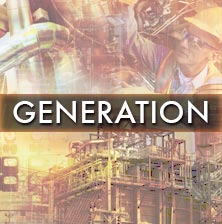The following is a small selection of items recently published by EPRI. To view complete lists of your company-funded research reports, updates, software, training announcements, and other program deliverables, log in at www.epri.com and go to Program Cockpits.

Irradiation assisted stress corrosion cracking is a form of degradation that can cause component failures in nuclear power plants. This research examines the factors driving this degradation and mitigation techniques.

Transmission system operators increasingly face high operating voltages. This report discusses potential adverse impacts associated with sustained elevated voltage, related standards, and research needs.

Organizations that report solar and wind power capital costs are rarely in agreement. By examining these organizations’ disparate data collection and modeling approaches, this report aims to inform users of cost data.

Filming amines are used for corrosion protection in the steam/water cycles of fossil power plants. This study evaluated the effectiveness of four methods used to measure the concentration of filming amines in the steam/water cycle.

This laboratory study examined the geotechnical properties of fly ash and flue gas desulfurization solids, including gradation, specific gravity, plasticity, and shear strength.

This report discusses various aspects of indoor agriculture, including market trends and challenges, technology assessment, sustainability, affordability, customer relations, jobs, energy use, and grid impacts.

Triggered by the high-altitude detonation of a nuclear weapon, a high-altitude electromagnetic pulse (HEMP) is a sudden burst of electromagnetic radiation that can damage electronic components in the power grid. One component of HEMP is a high-amplitude electric field pulse or E1. This study examines the characteristics of E1 and describes methods to assess potential damage as a result of E1.

Under the auspices of the Advanced Research Projects Agency–Energy, this research aims to examine the capabilities and value of four new power flow controller technologies. These have potential to direct power flow on the grid more efficiently to reduce congestion, help minimize energy losses, increase network flexibility to better accommodate renewable generation, and enable greater grid responsiveness and reliability.

EPRI’s Combined-Cycle Turbomachinery program addresses all aspects of the management of conventional and advanced gas turbines. This report discusses the program’s activities in 2017 and 2018.

This report examines trends in wholesale energy price spikes in the United States. It is part of a series of briefs on historical electricity market conditions, current market designs, and anticipated changes in market designs.

This report details functional and communication requirements for demand-responsive electric vehicle service equipment, thermostats, water heaters, and pool pumps to enable coordinated control of these devices. It examines how such loads can enable substantially higher penetration of solar generation while still meeting consumer expectations.

This report evaluates emerging electric technologies in the heating, ventilation, and air conditioning (HVAC) industry with potential to improve efficiency and cost-effectiveness.